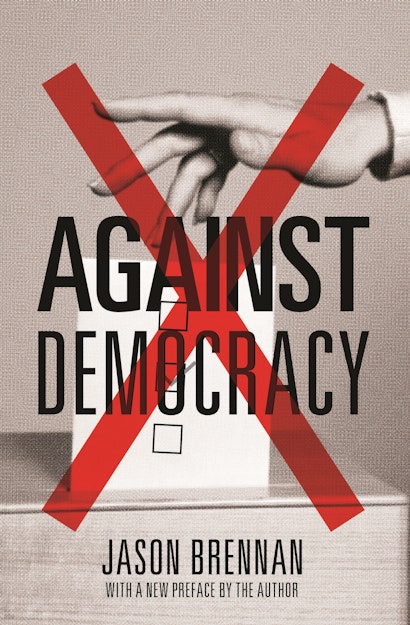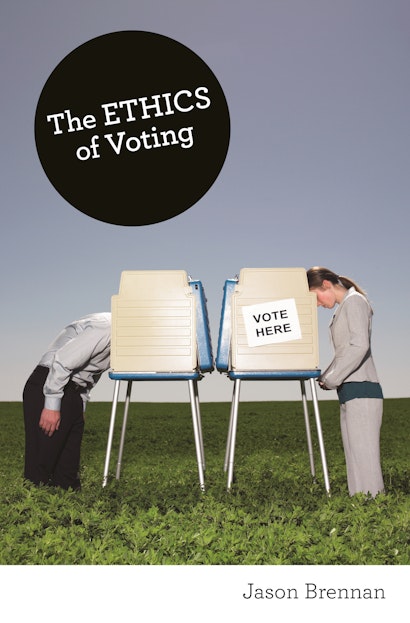What do we owe each other in this crisis?
Let’s tackle one aspect of this question. A person might think as follows: If I know I am sick, then I understand why I am obligated to self-quarantine. I understand that I am a vector of disease and that I will almost certainly infect others. But if I am not sick, why should I engage in prophylactic behaviors, such as frequent handwashing, working from home, or social distancing? Is it simply to reduce my own risk? What if I’m young and at low risk of serious illness, so I am unlikely to become seriously ill anyway?
There is something of a philosophical puzzle here. If you know you are infected and contagious, then you should stay away from others. Everyone accepts that. But the harder question is what we owe each other when most people who are contagious will not know, at first, that they are infected. We know some people are spreading the disease right now, but we won’t know who they are until it’s late.
So, part of the problem is uncertainty. But there is also a collective action problem. Even if any one of us exercises appropriate caution, we cannot guarantee others will. A person might also think, even if I stay away from others now, other infected people won’t. So, most people will get infected anyway. Why should I impose these costs on myself, when I don’t even know if I am contagious and when it will probably make little difference in the long run?
Let’s consider a few analogies which will hopefully shed light on these problems.
Consider, at first, the following case, take from The Ethics of Voting. This one is not quite analogous, but by modifying it slightly, we can help determine what our obligations are.
Firing Squad
A band of 100 sharpshooters is about to kill an innocent child. They have been trained to shoot in such a way that each shot will hit the child at the same time, and each shot would be fatal on its own. You can’t stop them from killing the child. They ask you if you’d like to join in and take the 101st shot
Nearly everyone has the moral intuition here that you are obligated not to join in, even though by hypothesis, the child will die no matter what you do. We believe in what I called (fortuitously?) the “clean hands principle”: there is a moral obligation not to participate in collectively harmful activities. A collectively harmful activity is a harmful activity performed by a group or collective, where individual inputs into the harmful action have negligible or no impact on the outcome. Nevertheless, most of us conclude we must keep our hands clean. In short: By default, you should not be part of a group causing harm to others, even when your individual input is negligible.
In Firing Squad, the child will die. But this is not yet a strong analogy to our situation, in part because most of us don’t know whether we will harm others. I could be contagious, but I’m probably not. So, let’s modify the case slightly.
Probabilistic Firing Squad
The sharpshooters from Firing Squad have captured a second child. They will roll a 10-sided die. If they roll a 1, they will shoot the child. Otherwise, they will let the child go. They offer to have you shoot with them if they roll a 1.
Again, it seems wrong to participate, even though now the risk of harm is much lower.
So, it seems plausible to conclude something like this: You should keep your hands clean, by avoiding being part of a group that imposes undue risk of harm to others.
However, this case is still not quite analogous. After all, in Probabilistic Firing Squad, it’s clear that the shooters are imposing undue risk of harm upon the child. When it comes to SARS-CoV-2, most of us will not even know at first whether we are contagious or not. It could take us up to two weeks for symptoms to develop, though we will have been contagious for much of that time. We aren’t choosing to join in with the firing squad. Rather, we don’t even know whether we’re part of the squad or not. Further, in the firing squad cases, there is no real benefit to joining in and no real harm to you from not shooting.
So, let’s consider some modifications that account for this.
Probabilistic Bomb Squad
The sharpshooters from Firing Squad are irritated that no one will join in their executions. So, they hatched an evil plan. They secretly attached invisible, undetectable, unremovable bombs to every person in the US. The bombs explode somewhat at random, according to an algorithm: somewhere between 20-75% of the bombs will explode at some various points over the next sixth months.
When the bombs explode, they will release a poison gas for weeks on end. The poison tends to incapacitate older people who breathe it, though it has milder effects on young people. It tends to kill about 15% of people over age 70 who breathe it in but has a lower fatality on the younger. Finally, if any person’s bomb is exposed to poison gas, then their own bomb then acquires a much higher chance of exploding in the next two weeks.
The good news is that the bombs have a weakness: If you frequently scrub yourself down with soap and water, they have a far lower chance of going off.
This situation is a more complicated version of Probabilistic Firing Squad. Here, we don’t get to choose whether to join the sharpshooters. We’ve been drafted against our will. We know we have the bombs, but we have no idea when or even if they’ll explode. We have some idea of what the harms will be.
In this situation, we still have to live our lives. We have to pay our bills and feed our kids. We can’t afford to shut everything down. We have to balance our personal needs against the risk we involuntarily impose on others.
What, then, should we do? Here, it seems plausible we should stay home as much as possible, avoid gathering in large crowds, stay away from the elderly who are most at risk from the poison gas, and try to diffuse our bombs through frequent washing. The more easily we can isolate ourselves, the more we should.
You can see where this is going. Think of yourself as having one of these invisible, undetectable, unremovable poison bombs on your person right now. Think of yourself as having somewhere between a 20-75% chance of your bomb exploding over the next few months, with the chances becoming much higher if you are exposed to another exploding bomb. Think of your bomb as triggering others’ bombs. Act accordingly.
Jason Brennan is the Flanagan Professor at Georgetown University, and author of When All Else Fails.



